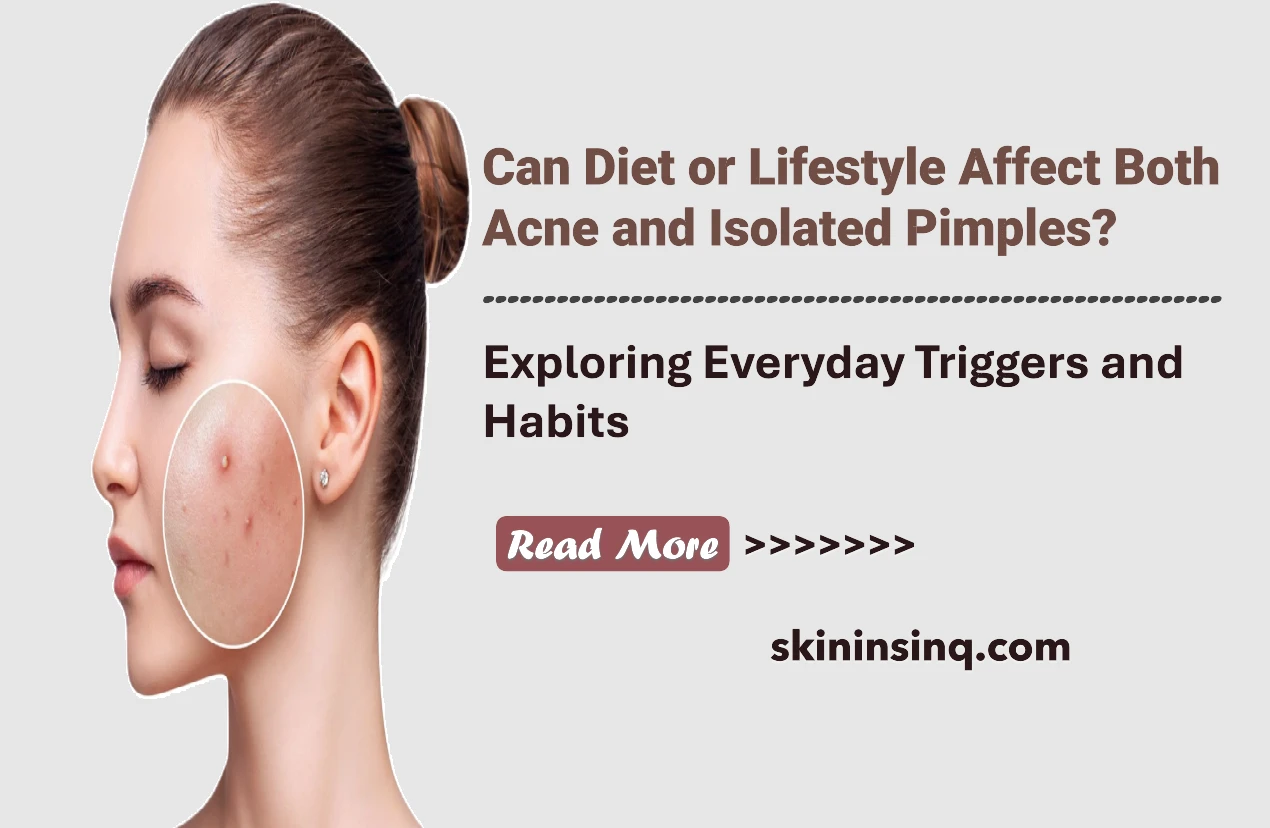Can Diet or Lifestyle Affect Both Acne and Isolated Pimples? Exploring Everyday Triggers and Habits
Can Diet or Lifestyle Affect Both Acne and Isolated Pimples? Exploring Everyday Triggers and Habits
Acne and occasional isolated pimples are common skin concerns that can affect people of all ages. While genetics and hormones play a major role, many individuals overlook the impact of daily habits, diet, and lifestyle choices. Understanding how these factors contribute to both chronic acne and random breakouts can be key to achieving clearer, healthier skin.
The Connection Between Diet and Skin Health
Diet can influence inflammation, hormone levels, and sebum (oil) production—all of which contribute to breakouts. Certain foods may trigger acne in some individuals more than others, depending on their unique skin type and sensitivity.
High Glycemic Foods: Consuming foods that cause rapid spikes in blood sugar—such as white bread, sugary snacks, and processed cereals—may increase insulin levels, leading to greater oil production and clogged pores. Studies have shown a potential link between high-glycemic diets and an increase in acne severity.
Dairy Products: Milk, particularly skim milk, has been associated with acne in some studies. It's believed that hormones in dairy products might contribute to excess oil production or inflammation. While not everyone will see a direct effect, those prone to breakouts might benefit from reducing their dairy intake.
Lack of Nutrients: Diets low in antioxidants, zinc, and omega-3 fatty acids may impair skin healing and increase susceptibility to inflammation. Incorporating more fruits, vegetables, nuts, and fish can help support overall skin health.
Lifestyle Factors That Can Trigger Breakouts
Daily habits and environmental factors play a major role in skin clarity. Both acne and isolated pimples can be affected by how we care for our skin and manage stress.
Stress Levels: Stress increases cortisol production, which can stimulate oil glands and worsen acne or cause random flare-ups. High stress also leads to unhealthy habits such as poor diet, lack of sleep, or touching the face frequently—all of which can contribute to breakouts.
Sleep Quality: Inadequate sleep can disrupt the body’s natural repair process and hormone regulation. Poor sleep weakens the immune system and increases inflammation, making the skin more prone to acne and pimples.
Hygiene and Skincare: Not cleansing the skin properly, over-washing, or using harsh skincare products can all aggravate the skin. Dirty pillowcases, mobile phones, and makeup brushes can also harbor bacteria that clog pores and lead to isolated pimples.
Exercise and Sweat: While regular exercise is beneficial for circulation and stress management, allowing sweat to sit on the skin too long after a workout can lead to clogged pores. Showering and cleansing promptly after sweating helps prevent this.
Conclusion
Diet and lifestyle undeniably play a role in both persistent acne and occasional pimples. While they may not be the sole cause, certain food choices and daily habits can act as triggers or worsen existing skin issues. By paying attention to nutrition, managing stress, and adopting a consistent, gentle skincare routine, individuals can reduce the frequency and severity of breakouts. Every skin is different, so tracking personal triggers and consulting with a dermatologist can lead to a more tailored and effective approach.

Related Blog
Can People with Dry Skin Also Have Acne? Understanding Breakouts Beyond Oily Skin Types
Aug 2, 2025 by Admin
General Acne
What Causes Oily Skin and Can It Be Managed Naturally? Exploring Root Causes and Gentle Solutions
Aug 2, 2025 by Admin
General
Does Popping Pimples Always Make Acne Worse? The Risks and Realities of Squeezing Breakouts
Aug 2, 2025 by Admin
General Acne
Do Oily Foods Make Pimples Worse? Uncovering the Truth Behind Diet and Breakouts
Aug 2, 2025 by Admin
General Acne